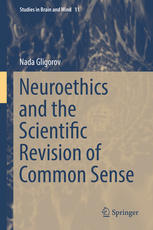

Most ebook files are in PDF format, so you can easily read them using various software such as Foxit Reader or directly on the Google Chrome browser.
Some ebook files are released by publishers in other formats such as .awz, .mobi, .epub, .fb2, etc. You may need to install specific software to read these formats on mobile/PC, such as Calibre.
Please read the tutorial at this link: https://ebookbell.com/faq
We offer FREE conversion to the popular formats you request; however, this may take some time. Therefore, right after payment, please email us, and we will try to provide the service as quickly as possible.
For some exceptional file formats or broken links (if any), please refrain from opening any disputes. Instead, email us first, and we will try to assist within a maximum of 6 hours.
EbookBell Team

4.8
14 reviewsThis book is focused on the examination of the particular relationship between developments in neuroscience and commonsense concepts, such as free will, personal identity, privacy, etc., which feature prominently in moral discourse. In the book common sense is recast as an ever-shifting repository of theories from many domains, including science. Utilizing this alternative characterization of common sense, the book reexamines the impact of neuroscience on commonsense moral conceptions.
Neuroethics is one of the newest, developing branches of Bioethics. Topics often raised include issues of free will, personal identity and the self; the possible ethical implication of memory manipulation; brain imaging and mind-reading; brain stimulation/enhancement and its impacts on personal identity; and brain death.